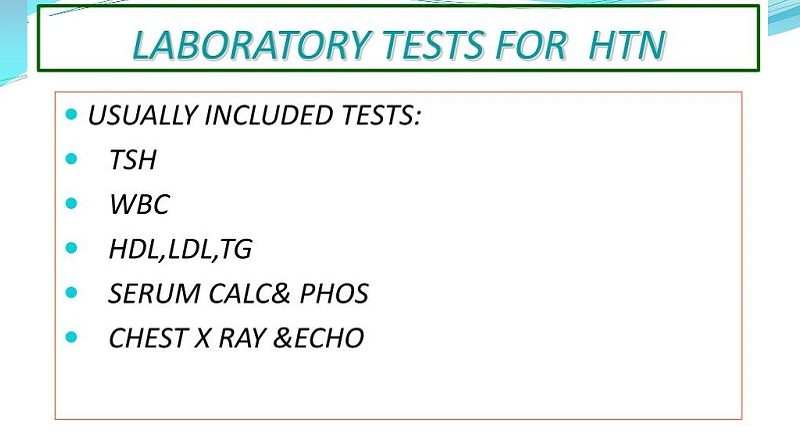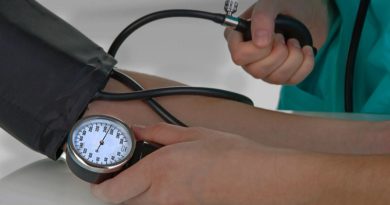Hypertension Laboratory Tests for Managing High Blood Pressure
High blood pressure, also known as hypertension, is a common condition that affects millions of people worldwide. It is a major risk factor for heart disease, stroke, and other serious health problems. Fortunately, hypertension can be managed through lifestyle changes and medication. However, in order to effectively manage hypertension, it is important to get regular hypertension laboratory tests.
There are several hypertension laboratory tests that can be used to monitor blood pressure and assess the overall health of the cardiovascular system. Some of the most common tests and procedures include:
- Blood Pressure Monitoring:
This is the most basic procedure for hypertension. Blood pressure is measured using a blood pressure cuff recording in millimeters of mercury (mmHg). A normal systolic blood pressure is 90 to 120 mmHg (the top number) while a normal diastolic pressure is 60 to 80 mmHg (the lower number). Blood pressure is considered elevated when the systolic number is between 120 and 129 mmHg. - Urine Test:
A urine test can help detect any signs of kidney damage or dysfunction, which can be a complication of hypertension. - Blood Test:
blood tests to detect any abnormal levels of cholesterol or other lipids in the blood. This can help identify any risk factors for heart disease and other complications of hypertension. - Electrocardiogram (ECG or EKG):
An ECG is a test that measures the electrical activity of the heart. It can help detect any abnormalities in the heart’s rhythm or structure, which can be a complication of hypertension. - Echocardiogram:
It is an ultrasound test that uses sound waves to create images of the heart. It can help detect any abnormalities in the heart’s structure or function, which can be a complication of hypertension.
Regular hypertension laboratory tests are important for managing high blood pressure and preventing complications. It is recommended that individuals with hypertension get their blood pressure checked at least once a year and get other hypertension laboratory tests as recommended by their doctor.
In addition to laboratory tests, individuals with hypertension can also manage their condition through lifestyle changes such as adopting a healthy diet, exercising regularly, quitting smoking, and managing stress. Medications may also be prescribed by a healthcare provider to help control blood pressure.
SUMMARY
Hypertension laboratory tests are an essential component of managing high blood pressure. They can help detect any complications of hypertension and assess the overall health of the cardiovascular system. If you have hypertension, be sure to get regular hypertension laboratory tests and work closely with your healthcare provider to manage your condition effectively.
SOURCES
- https://www.mayoclinic.org/diseases-conditions/high-blood-pressure/diagnosis-treatment/drc-20373417
- https://www.mayoclinic.org/tests-procedures/blood-pressure-test/about/pac-20393098
- https://www.nhlbi.nih.gov/health/high-blood-pressure/diagnosis
- https://www.webmd.com/hypertension-high-blood-pressure/guide/high-blood-pressure-tests
- https://www.verywellhealth.com/all-about-hypertension-diagnosis-1746064
- https://www.webmd.com/hypertension-high-blood-pressure/guide/hypertension-diagnosis-tests




